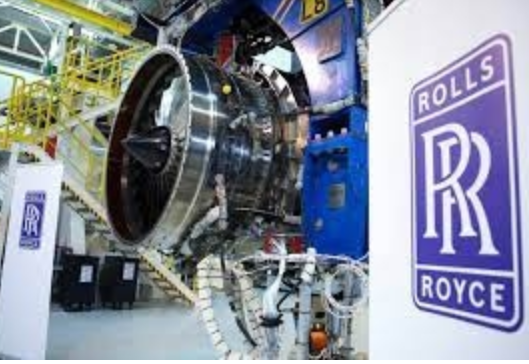Business
Rolls-Royce starts new set of ground-breaking hydrogen research test

New Delhi, Dec 21
British engine maker Rolls-Royce announced it has started a new set of ground-breaking hydrogen research tests.
Both Rolls-Royce and its partner easyJet are committed to being at the forefront of the development of hydrogen combustion engine technology capable of powering a range of aircraft, including those in the narrowbody market segment, from the mid-2030s onwards.
The latest set of tests, to prove aerospace cryogenic liquid hydrogen pump systems, have begun at Rolls-Royce's facility at Solihull, UK.
These will address a key engineering challenge of taking low-pressure liquid hydrogen, chilled below -250 degrees C, and pressurising it so that it can then be pumped into an engine to be combusted.
Rolls-Royce has identified three technology challenges in the journey to enabling hydrogen for use in aviation: fuel combustion, fuel delivery and fuel systems integration with an engine. All elements must be confirmed to operate safely.
In September, Rolls-Royce set a world first when tests on a full annular combustor of a Pearl 700 engine at DLR in Cologne running on 100 per cent hydrogen proved the fuel can be combusted at conditions that represent maximum take-off thrust.
The Solihull tests now mark the start of understanding the fuel delivery element. Initial tests have focused on chilling the pump and understanding its behaviour at cryogenic conditions. Further testing will resume early next year.
Simon Burr, Group Director of Engineering, Technology and Safety, Rolls-Royce, said: "We are continuing to make good progress on our hydrogen journey working alongside easyJet. Hydrogen is an opportunity that can be part of aviation’s energy transition and we are committed to fully understanding its potential."
Jane Ashton, Director of Sustainability, easyJet, said: "Hydrogen will be a key component in helping short haul aviation to decarbonise its operations and so we welcome the continued progress in Rolls Royce's testing programme. We look forward to working with Rolls-Royce to develop these new technologies which have the potential to create a true step-change in the aviation industry.â€
Last year, easyJet and Rolls-Royce also set a world first by successfully running a modern aero engine, an AE2100, on 100 per cent green hydrogen at Boscombe Down, UK.
The test programme supports a longer-term goal for Rolls-Royce and easyJet - a full gas hydrogen ground test on a Pearl engine.
That will in turn lead to a full ground test on a Pearl engine using liquid hydrogen - both easyJet and Rolls-Royce have a shared ambition to then take the technology to flight.
The pump research tests receive financial support through the UK Government's Aerospace Technology Institute, while the broader hydrogen test programme receives funding from easyJet.

8 hours ago
Trump, Mamdani bonhomie an unusual photo-op in Oval Office, but how long will truce last?

8 hours ago
Trump Jr grooves with Ranveer Singh at lavish Udaipur wedding as JLo, Bieber join celebrations

11 hours ago
BAPS, United Nations celebrate 30 years of transformative partnership for global harmony

14 hours ago
Ayan Mukerji says 'Love you & Miss you' as he remembers dad Deb Mukherjee on his birth anniversary

14 hours ago
Urmila Matondkar introduces her 'bestest winter essential'

14 hours ago
Tharoor cites Trump-Mamdani interaction to underline need for political cooperation

14 hours ago
ISI steps up effort to build white-collared modules by targeting Indian students abroad

14 hours ago
Prez Murmu participates in Sri Sathya Sai Baba’s birth centenary celebrations in Andhra

14 hours ago
Ready to meet PM Modi to explain Coimbatore, Madurai metro projects: CM Stalin

14 hours ago
No need to do politics on Mandir–Masjid: Former Babri mosque litigant on Trinamool MLA’s remark

14 hours ago
Navy Day 2025 to feature grand operational display of maritime power on Dec 3

14 hours ago
Delhi: AGS arrests accused wanted in attempt-to-murder case in Timarpur

14 hours ago
Govt to ensure uniform safety and health standards for workers






















